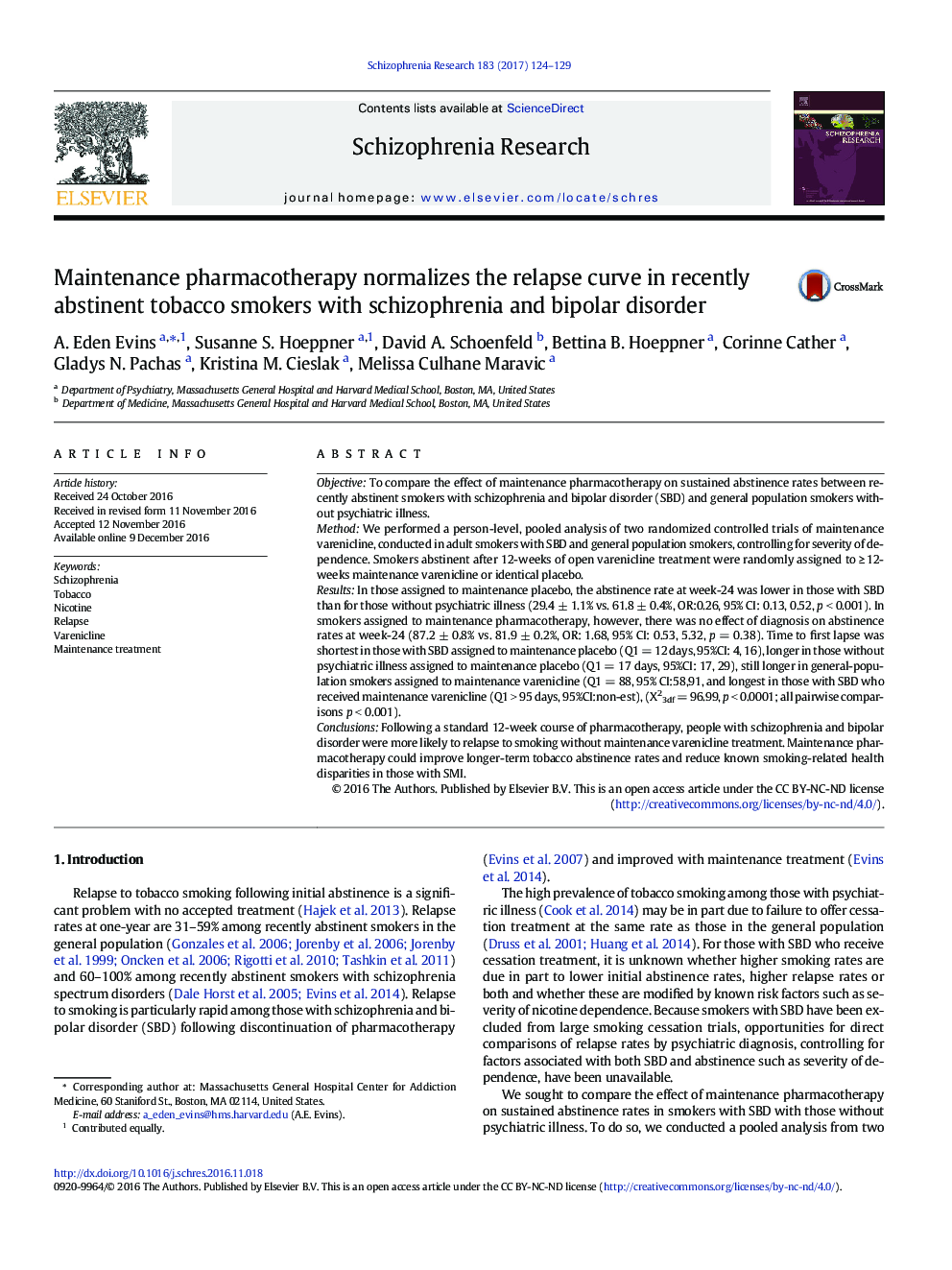| Article ID | Journal | Published Year | Pages | File Type |
|---|---|---|---|---|
| 4935066 | Schizophrenia Research | 2017 | 6 Pages |
ObjectiveTo compare the effect of maintenance pharmacotherapy on sustained abstinence rates between recently abstinent smokers with schizophrenia and bipolar disorder (SBD) and general population smokers without psychiatric illness.MethodWe performed a person-level, pooled analysis of two randomized controlled trials of maintenance varenicline, conducted in adult smokers with SBD and general population smokers, controlling for severity of dependence. Smokers abstinent after 12-weeks of open varenicline treatment were randomly assigned to â¥Â 12-weeks maintenance varenicline or identical placebo.ResultsIn those assigned to maintenance placebo, the abstinence rate at week-24 was lower in those with SBD than for those without psychiatric illness (29.4 ± 1.1% vs. 61.8 ± 0.4%, OR:0.26, 95% CI: 0.13, 0.52, p < 0.001). In smokers assigned to maintenance pharmacotherapy, however, there was no effect of diagnosis on abstinence rates at week-24 (87.2 ± 0.8% vs. 81.9 ± 0.2%, OR: 1.68, 95% CI: 0.53, 5.32, p = 0.38). Time to first lapse was shortest in those with SBD assigned to maintenance placebo (Q1 = 12 days, 95%CI: 4, 16), longer in those without psychiatric illness assigned to maintenance placebo (Q1 = 17 days, 95%CI: 17, 29), still longer in general-population smokers assigned to maintenance varenicline (Q1 = 88, 95% CI:58,91, and longest in those with SBD who received maintenance varenicline (Q1 > 95 days, 95%CI:non-est), (Χ23df = 96.99, p < 0.0001; all pairwise comparisons p < 0.001).ConclusionsFollowing a standard 12-week course of pharmacotherapy, people with schizophrenia and bipolar disorder were more likely to relapse to smoking without maintenance varenicline treatment. Maintenance pharmacotherapy could improve longer-term tobacco abstinence rates and reduce known smoking-related health disparities in those with SMI.
